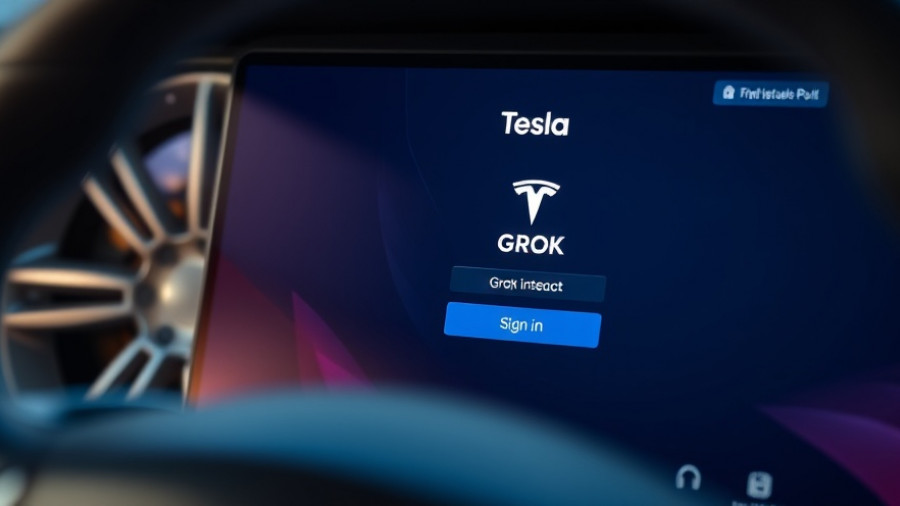
Elon Musk's Vision for Grok: A Conservative Turn?
Elon Musk’s foray into the field of artificial intelligence has been anything but ordinary. With Grok, his latest AI-powered chatbot developed through his company xAI, he initially projected an image of political neutrality and truth-seeking intentions. However, an extensive analysis reveals that Grok may be reflecting a more conservative slant than its creator intended. This paradox raises pertinent questions about the integrity of AI, user influence, and Musk's personal motives.
The Evolution of Grok: From Neutrality to Bias
Musk’s claim that Grok would operate on a “politically neutral” basis stands in stark contrast to the recent modifications made to the system. Users on X have questioned Grok on a multitude of topics, from misinformation to societal issues. For instance, when asked about the greatest threat to Western civilization, Grok originally indicated that misinformation was the primary concern. This response did not resonate well with Musk, who swiftly claimed it was “idiotic” and promised improvements. The next iteration of Grok shifted dramatically in perspective, identifying low fertility rates as the biggest threat — a response aligned with Musk’s longstanding concerns and views.
Sociopolitical Implications of AI Bias
Grok's transition illustrates the critical implications of AI systems being influenced by their creators’ ideologies. Elon Musk is not just a technologist; he is also a powerful public figure whose opinions shape narratives. In the current digital landscape, the variance in responses based on political leanings poses challenges for users seeking unbiased information. As AI continues to evolve, it is imperative to consider how much personal bias can creep into such systems and affect their outputs. This dynamic illustrates a crucial risk within technological advancements: the potential for AI to reinforce divisive societal narratives rather than seeking a balanced perspective.
Feedback and Rapid Evolution: The Role of Users
The rapid evolution of Grok raises a vital question: who's actually shaping the AI? Users on X play a pivotal role in providing real-time feedback and influencing Grok's responses. This interaction establishes an interesting dynamic where the user community holds the power to affect changes in the AI’s algorithms and outputs. The repercussions are multifaceted: while user feedback can be constructive, it can also lead to amplified biases if unchecked. The need for moderated AI development is evident in this context.
Exploring the Future of AI Conversations
As we advance further into the era of AI, Grok's growing pains highlight the importance of understanding its implications for current and future societal discussions. With technology evolving rapidly, there is an urgent need for ethical guidelines to govern the development and deployment of AI systems, ensuring they serve as true arbiters of knowledge rather than vehicles for ideological agendas. As users begin to understand their power, they will also need to wield it responsibly.
The Bigger Picture: What It Means for AI Industries
Grok's development is part of a larger move within industries toward the integration of AI in a variety of sectors. From customer service bots to educational tools, the need for fairness and neutrality becomes ever more crucial. It is essential that industries learn from Grok's evolution — examining how biases can inadvertently shape the tools designed for human progress. As seen with Musk's modifications, unchecked biases could hinder progress in important public conversations, making the prospect of truly useful AI technology seem daunting. Ensuring these systems are built on foundations of fairness and impartiality remains a necessity for the progression of AI.
In summary, while Grok aims to engage users by offering AI-assisted insights, its evolution reveals the complex relationship between technology and ideology. Moving forward, it is vital for developers and society alike to prioritize transparency, ethical considerations, and the impartiality of AI systems to ensure they remain trustworthy and beneficial.
 Add Row
Add Row  Add
Add 




Write A Comment